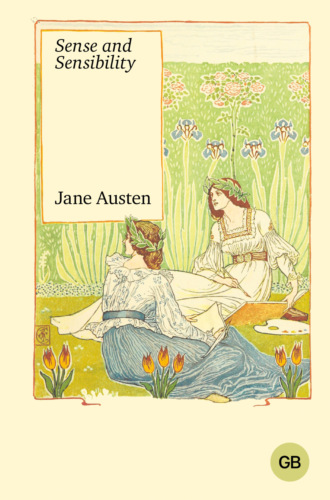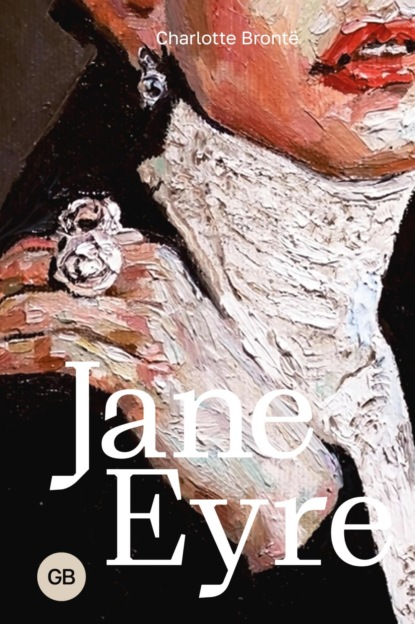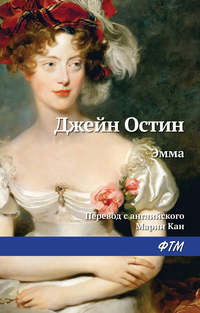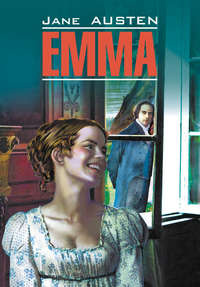
Полная версия
Sense and Sensibility / Разум и чувство
“Do not be alarmed,” said Miss Dashwood, “nothing of the kind will be done; for my mother will never have money enough to attempt it.”
“I am heartily glad of it,” he cried. “May she always be poor, if she can employ her riches no better.”
“Thank you, Willoughby. But you may be assured that I would not sacrifice one sentiment of local attachment of yours, or of any one whom I loved, for all the improvements in the world. Depend upon it that whatever unemployed sum may remain, when I make up my accounts in the spring, I would even rather lay it uselessly by than dispose of it in a manner so painful to you. But are you really so attached to this place as to see no defect in it?”
“I am,” said he. “To me it is faultless. Nay, more, I consider it as the only form of building in which happiness is attainable, and were I rich enough I would instantly pull Combe down, and build it up again in the exact plan of this cottage.”
“With dark narrow stairs and a kitchen that smokes, I suppose,” said Elinor.
“Yes,” cried he in the same eager tone, “with all and every thing belonging to it;—in no one convenience or inconvenience about it, should the least variation be perceptible. Then, and then only, under such a roof, I might perhaps be as happy at Combe as I have been at Barton.”
“I flatter myself,” replied Elinor, “that even under the disadvantage of better rooms and a broader staircase, you will hereafter find your own house as faultless as you now do this.”
“There certainly are circumstances,” said Willoughby, “which might greatly endear it to me; but this place will always have one claim of my affection, which no other can possibly share.”
Mrs. Dashwood looked with pleasure at Marianne, whose fine eyes were fixed so expressively on Willoughby, as plainly denoted how well she understood him.
“How often did I wish,” added he, “when I was at Allenham this time twelvemonth, that Barton cottage were inhabited! I never passed within view of it without admiring its situation, and grieving that no one should live in it. How little did I then think that the very first news I should hear from Mrs. Smith, when I next came into the country, would be that Barton cottage was taken: and I felt an immediate satisfaction and interest in the event, which nothing but a kind of prescience of what happiness I should experience from it, can account for. Must it not have been so, Marianne?” speaking to her in a lowered voice. Then continuing his former tone, he said, “And yet this house you would spoil, Mrs. Dashwood? You would rob it of its simplicity by imaginary improvement! and this dear parlour in which our acquaintance first began, and in which so many happy hours have been since spent by us together, you would degrade to the condition of a common entrance, and every body would be eager to pass through the room which has hitherto contained within itself more real accommodation and comfort than any other apartment of the handsomest dimensions in the world could possibly afford.”
Mrs. Dashwood again assured him that no alteration of the kind should be attempted.
“You are a good woman,” he warmly replied. “Your promise makes me easy. Extend it a little farther, and it will make me happy. Tell me that not only your house will remain the same, but that I shall ever find you and yours as unchanged as your dwelling; and that you will always consider me with the kindness which has made everything belonging to you so dear to me.”
The promise was readily given, and Willoughby’s behaviour during the whole of the evening declared at once his affection and happiness.
“Shall we see you tomorrow to dinner?” said Mrs. Dashwood, when he was leaving them. “I do not ask you to come in the morning, for we must walk to the park, to call on Lady Middleton.”
He engaged to be with them by four o’clock.
Chapter XV
Mrs. Dashwood’s visit to Lady Middleton took place the next day, and two of her daughters went with her; but Marianne excused herself from being of the party, under some trifling pretext of employment; and her mother, who concluded that a promise had been made by Willoughby the night before of calling on her while they were absent, was perfectly satisfied with her remaining at home.
On their return from the park they found Willoughby’s curricle and servant in waiting at the cottage, and Mrs. Dashwood was convinced that her conjecture had been just. So far it was all as she had foreseen; but on entering the house she beheld what no foresight had taught her to expect. They were no sooner in the passage than Marianne came hastily out of the parlour apparently in violent affliction, with her handkerchief at her eyes; and without noticing them ran up stairs. Surprised and alarmed they proceeded directly into the room she had just quitted, where they found only Willoughby, who was leaning against the mantel-piece with his back towards them. He turned round on their coming in, and his countenance showed that he strongly partook of the emotion which over-powered Marianne.
“Is anything the matter with her?” cried Mrs. Dashwood as she entered—“is she ill?”
“I hope not,” he replied, trying to look cheerful; and with a forced smile presently added, “It is I who may rather expect to be ill—for I am now suffering under a very heavy disappointment!”
“Disappointment?”
“Yes, for I am unable to keep my engagement with you. Mrs. Smith has this morning exercised the privilege of riches upon a poor dependent cousin, by sending me on business to London. I have just received my dispatches, and taken my farewell of Allenham; and by way of exhilaration I am now come to take my farewell of you.”
“To London!—and are you going this morning?”
“Almost this moment.”
“This is very unfortunate. But Mrs. Smith must be obliged;—and her business will not detain you from us long I hope.”
He coloured as he replied, “You are very kind, but I have no idea of returning into Devonshire immediately. My visits to Mrs. Smith are never repeated within the twelvemonth.”
“And is Mrs. Smith your only friend? Is Allenham the only house in the neighbourhood to which you will be welcome? For shame, Willoughby, can you wait for an invitation here?”
His colour increased; and with his eyes fixed on the ground he only replied, “You are too good.”
Mrs. Dashwood looked at Elinor with surprise. Elinor felt equal amazement. For a few moments every one was silent. Mrs. Dashwood first spoke.
“I have only to add, my dear Willoughby, that at Barton cottage you will always be welcome; for I will not press you to return here immediately, because you only can judge how far that might be pleasing to Mrs. Smith; and on this head I shall be no more disposed to question your judgment than to doubt your inclination.”
“My engagements at present,” replied Willoughby, confusedly, “are of such a nature—that—I dare not flatter myself—”
He stopped. Mrs. Dashwood was too much astonished to speak, and another pause succeeded. This was broken by Willoughby, who said with a faint smile, “It is folly to linger in this manner. I will not torment myself any longer by remaining among friends whose society it is impossible for me now to enjoy.”
He then hastily took leave of them all and left the room. They saw him step into his carriage, and in a minute it was out of sight.
Mrs. Dashwood felt too much for speech, and instantly quitted the parlour to give way in solitude to the concern and alarm which this sudden departure occasioned.
Elinor’s uneasiness was at least equal to her mother’s. She thought of what had just passed with anxiety and distrust. Willoughby’s behaviour in taking leave of them, his embarrassment, and affectation of cheerfulness, and, above all, his unwillingness to accept her mother’s invitation, a backwardness so unlike a lover, so unlike himself, greatly disturbed her. One moment she feared that no serious design had ever been formed on his side; and the next that some unfortunate quarrel had taken place between him and her sister;—the distress in which Marianne had quitted the room was such as a serious quarrel could most reasonably account for, though when she considered what Marianne’s love for him was, a quarrel seemed almost impossible.
But whatever might be the particulars of their separation, her sister’s affliction was indubitable; and she thought with the tenderest compassion of that violent sorrow which Marianne was in all probability not merely giving way to as a relief, but feeding and encouraging as a duty.
In about half an hour her mother returned, and though her eyes were red, her countenance was not uncheerful.
“Our dear Willoughby is now some miles from Barton, Elinor,” said she, as she sat down to work, “and with how heavy a heart does he travel?”
“It is all very strange. So suddenly to be gone! It seems but the work of a moment. And last night he was with us so happy, so cheerful, so affectionate? And now, after only ten minutes notice—Gone too without intending to return!—Something more than what he owned to us must have happened. He did not speak, he did not behave like himself. You must have seen the difference as well as I. What can it be? Can they have quarrelled? Why else should he have shown such unwillingness to accept your invitation here?”
“It was not inclination that he wanted, Elinor; I could plainly see that. He had not the power of accepting it. I have thought it all over I assure you, and I can perfectly account for every thing that at first seemed strange to me as well as to you.”
“Can you, indeed!”
“Yes. I have explained it to myself in the most satisfactory way;—but you, Elinor, who love to doubt where you can—it will not satisfy you, I know; but you shall not talk me out of my trust in it. I am persuaded that Mrs. Smith suspects his regard for Marianne, disapproves of it, (perhaps because she has other views for him,) and on that account is eager to get him away;—and that the business which she sends him off to transact is invented as an excuse to dismiss him. This is what I believe to have happened. He is, moreover, aware that she does disapprove the connection, he dares not therefore at present confess to her his engagement with Marianne, and he feels himself obliged, from his dependent situation, to give into her schemes, and absent himself from Devonshire for a while. You will tell me, I know, that this may or may not have happened; but I will listen to no cavil, unless you can point out any other method of understanding the affair as satisfactory at this. And now, Elinor, what have you to say?”
“Nothing, for you have anticipated my answer.”
“Then you would have told me, that it might or might not have happened. Oh, Elinor, how incomprehensible are your feelings! You had rather take evil upon credit than good. You had rather look out for misery for Marianne, and guilt for poor Willoughby, than an apology for the latter. You are resolved to think him blameable, because he took leave of us with less affection than his usual behaviour has shown. And is no allowance to be made for inadvertence, or for spirits depressed by recent disappointment? Are no probabilities to be accepted, merely because they are not certainties? Is nothing due to the man whom we have all such reason to love, and no reason in the world to think ill of? To the possibility of motives unanswerable in themselves, though unavoidably secret for a while? And, after all, what is it you suspect him of?”
“I can hardly tell myself. But suspicion of something unpleasant is the inevitable consequence of such an alteration as we just witnessed in him. There is great truth, however, in what you have now urged of the allowances which ought to be made for him, and it is my wish to be candid in my judgment of every body. Willoughby may undoubtedly have very sufficient reasons for his conduct, and I will hope that he has. But it would have been more like Willoughby to acknowledge them at once. Secrecy may be advisable; but still I cannot help wondering at its being practiced by him.”
“Do not blame him, however, for departing from his character, where the deviation is necessary. But you really do admit the justice of what I have said in his defence?—I am happy—and he is acquitted.”
“Not entirely. It may be proper to conceal their engagement (if they are engaged) from Mrs. Smith—and if that is the case, it must be highly expedient for Willoughby to be but little in Devonshire at present. But this is no excuse for their concealing it from us.”
“Concealing it from us! my dear child, do you accuse Willoughby and Marianne of concealment? This is strange indeed, when your eyes have been reproaching them every day for incautiousness.”
“I want no proof of their affection,” said Elinor; “but of their engagement I do.”
“I am perfectly satisfied of both.”
“Yet not a syllable has been said to you on the subject, by either of them.”
“I have not wanted syllables where actions have spoken so plainly. Has not his behaviour to Marianne and to all of us, for at least the last fortnight, declared that he loved and considered her as his future wife, and that he felt for us the attachment of the nearest relation? Have we not perfectly understood each other? Has not my consent been daily asked by his looks, his manner, his attentive and affectionate respect? My Elinor, is it possible to doubt their engagement? How could such a thought occur to you? How is it to be supposed that Willoughby, persuaded as he must be of your sister’s love, should leave her, and leave her perhaps for months, without telling her of his affection;—that they should part without a mutual exchange of confidence?”
“I confess,” replied Elinor, “that every circumstance except one is in favour of their engagement; but that one is the total silence of both on the subject, and with me it almost outweighs every other.”
“How strange this is! You must think wretchedly indeed of Willoughby, if, after all that has openly passed between them, you can doubt the nature of the terms on which they are together. Has he been acting a part in his behaviour to your sister all this time? Do you suppose him really indifferent to her?”
“No, I cannot think that. He must and does love her I am sure.”
“But with a strange kind of tenderness, if he can leave her with such indifference, such carelessness of the future, as you attribute to him.”
“You must remember, my dear mother, that I have never considered this matter as certain. I have had my doubts, I confess; but they are fainter than they were, and they may soon be entirely done away. If we find they correspond, every fear of mine will be removed.”
“A mighty concession indeed! If you were to see them at the altar, you would suppose they were going to be married. Ungracious girl! But I require no such proof. Nothing in my opinion has ever passed to justify doubt; no secrecy has been attempted; all has been uniformly open and unreserved. You cannot doubt your sister’s wishes. It must be Willoughby therefore whom you suspect. But why? Is he not a man of honour and feeling? Has there been any inconsistency on his side to create alarm? can he be deceitful?”
“I hope not, I believe not,” cried Elinor. “I love Willoughby, sincerely love him; and suspicion of his integrity cannot be more painful to yourself than to me. It has been involuntary, and I will not encourage it. I was startled, I confess, by the alteration in his manners this morning;—he did not speak like himself, and did not return your kindness with any cordiality. But all this may be explained by such a situation of his affairs as you have supposed. He had just parted from my sister, had seen her leave him in the greatest affliction; and if he felt obliged, from a fear of offending Mrs. Smith, to resist the temptation of returning here soon, and yet aware that by declining your invitation, by saying that he was going away for some time, he should seem to act an ungenerous, a suspicious part by our family, he might well be embarrassed and disturbed. In such a case, a plain and open avowal of his difficulties would have been more to his honour I think, as well as more consistent with his general character;—but I will not raise objections against any one’s conduct on so illiberal a foundation, as a difference in judgment from myself, or a deviation from what I may think right and consistent.”
“You speak very properly. Willoughby certainly does not deserve to be suspected. Though we have not known him long, he is no stranger in this part of the world; and who has ever spoken to his disadvantage? Had he been in a situation to act independently and marry immediately, it might have been odd that he should leave us without acknowledging everything to me at once: but this is not the case. It is an engagement in some respects not prosperously begun, for their marriage must be at a very uncertain distance; and even secrecy, as far as it can be observed, may now be very advisable.”
They were interrupted by the entrance of Margaret; and Elinor was then at liberty to think over the representations of her mother, to acknowledge the probability of many, and hope for the justice of all.
They saw nothing of Marianne till dinner time, when she entered the room and took her place at the table without saying a word. Her eyes were red and swollen; and it seemed as if her tears were even then restrained with difficulty. She avoided the looks of them all, could neither eat nor speak, and after some time, on her mother’s silently pressing her hand with tender compassion, her small degree of fortitude was quite overcome, she burst into tears and left the room.
This violent oppression of spirits continued the whole evening. She was without any power, because she was without any desire of command over herself. The slightest mention of anything relative to Willoughby overpowered her in an instant; and though her family were most anxiously attentive to her comfort, it was impossible for them, if they spoke at all, to keep clear of every subject which her feelings connected with him.
Chapter XVI
Marianne would have thought herself very inexcusable had she been able to sleep at all the first night after parting from Willoughby. She would have been ashamed to look her family in the face the next morning, had she not risen from her bed in more need of repose than when she lay down in it. But the feelings which made such composure a disgrace, left her in no danger of incurring it. She was awake the whole night, and she wept the greatest part of it. She got up with a headache, was unable to talk, and unwilling to take any nourishment; giving pain every moment to her mother and sisters, and forbidding all attempt at consolation from either. Her sensibility was potent enough!
When breakfast was over she walked out by herself, and wandered about the village of Allenham, indulging the recollection of past enjoyment and crying over the present reverse for the chief of the morning.
The evening passed off in the equal indulgence of feeling. She played over every favourite song that she had been used to play to Willoughby, every air in which their voices had been oftenest joined, and sat at the instrument gazing on every line of music that he had written out for her, till her heart was so heavy that no farther sadness could be gained; and this nourishment of grief was every day applied. She spent whole hours at the pianoforte alternately singing and crying; her voice often totally suspended by her tears. In books too, as well as in music, she courted the misery which a contrast between the past and present was certain of giving. She read nothing but what they had been used to read together.
Such violence of affliction indeed could not be supported for ever; it sunk within a few days into a calmer melancholy; but these employments, to which she daily recurred, her solitary walks and silent meditations, still produced occasional effusions of sorrow as lively as ever.
No letter from Willoughby came; and none seemed expected by Marianne. Her mother was surprised, and Elinor again became uneasy. But Mrs. Dashwood could find explanations whenever she wanted them, which at least satisfied herself.
“Remember, Elinor,” said she, “how very often Sir John fetches our letters himself from the post, and carries them to it. We have already agreed that secrecy may be necessary, and we must acknowledge that it could not be maintained if their correspondence were to pass through Sir John’s hands.”
Elinor could not deny the truth of this, and she tried to find in it a motive sufficient for their silence. But there was one method so direct, so simple, and in her opinion so eligible of knowing the real state of the affair, and of instantly removing all mystery, that she could not help suggesting it to her mother.
“Why do you not ask Marianne at once,” said she, “whether she is or she is not engaged to Willoughby? From you, her mother, and so kind, so indulgent a mother, the question could not give offence. It would be the natural result of your affection for her. She used to be all unreserve, and to you more especially.”
“I would not ask such a question for the world. Supposing it possible that they are not engaged, what distress would not such an enquiry inflict! At any rate it would be most ungenerous. I should never deserve her confidence again, after forcing from her a confession of what is meant at present to be unacknowledged to any one. I know Marianne’s heart: I know that she dearly loves me, and that I shall not be the last to whom the affair is made known, when circumstances make the revealment of it eligible. I would not attempt to force the confidence of any one; of a child much less; because a sense of duty would prevent the denial which her wishes might direct.”
Elinor thought this generosity overstrained, considering her sister’s youth, and urged the matter farther, but in vain; common sense, common care, common prudence, were all sunk in Mrs. Dashwood’s romantic delicacy.
It was several days before Willoughby’s name was mentioned before Marianne by any of her family; Sir John and Mrs. Jennings, indeed, were not so nice; their witticisms added pain to many a painful hour;—but one evening, Mrs. Dashwood, accidentally taking up a volume of Shakespeare, exclaimed,
“We have never finished Hamlet, Marianne; our dear Willoughby went away before we could get through it. We will put it by, that when he comes again… But it may be months, perhaps, before that happens.”
“Months!” cried Marianne, with strong surprise. “No—nor many weeks.”
Mrs. Dashwood was sorry for what she had said; but it gave Elinor pleasure, as it produced a reply from Marianne so expressive of confidence in Willoughby and knowledge of his intentions.
One morning, about a week after his leaving the country, Marianne was prevailed on to join her sisters in their usual walk, instead of wandering away by herself. Hitherto she had carefully avoided every companion in her rambles. If her sisters intended to walk on the downs, she directly stole away towards the lanes; if they talked of the valley, she was as speedy in climbing the hills, and could never be found when the others set off. But at length she was secured by the exertions of Elinor, who greatly disapproved such continual seclusion. They walked along the road through the valley, and chiefly in silence, for Marianne’s mind could not be controlled, and Elinor, satisfied with gaining one point, would not then attempt more. Beyond the entrance of the valley, where the country, though still rich, was less wild and more open, a long stretch of the road which they had travelled on first coming to Barton, lay before them; and on reaching that point, they stopped to look around them, and examine a prospect which formed the distance of their view from the cottage, from a spot which they had never happened to reach in any of their walks before.
Amongst the objects in the scene, they soon discovered an animated one; it was a man on horseback riding towards them. In a few minutes they could distinguish him to be a gentleman; and in a moment afterwards Marianne rapturously exclaimed,
“It is he; it is indeed;—I know it is!”—and was hastening to meet him, when Elinor cried out,
“Indeed, Marianne, I think you are mistaken. It is not Willoughby. The person is not tall enough for him, and has not his air.”














![Love and Freindship [sic]](/covers_200/25019987.jpg)